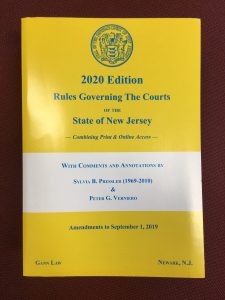Valentines Day. A day that couples celebrate their love. Sending flowers with a card to one’s significant other is a common way of expressing that love. And to not be disappointed, people are encouraged to order their flowers as soon as possible to assure delivery by Valentine’s Day. One does so. But after the order is placed, the lovers become fighters and someone obtains a Domestic Violence Restraining Order against the other. In the meantime, the flower and card get delivered and the sender gets arrested and charged with criminal contempt. Was this a crime? That was the situation presented in the case of State v. J.T., 470 N.J. Super 106(Ch. Div. 2020) which was recently approved for publication.
In this case, the defendant had been charged with a contempt of a domestic violence TRO. The issues addressed by the Court was whether the defendant could be found to have “purposely or knowingly” violated the TRO by having initiated communication to a protected party prior to the entry and service if the TRO, and secondarily, whether a defendant was subject to a TRO has an affirmative obligation to attempt to recall or withdraw such communication. The Court found the answer to both questions to be negative and accordingly, dismissed the Contempt Complaint against the defendant.
In this matter, the parties had been in a dating relationship. The plaintiff had obtained a TRO against the defendant on January 31, 2020, which the defendant acknowledged had been served upon him on that date. However, one (1) week prior to the entry of the TRO, the defendant had ordered a floral arrangement for the plaintiff which was scheduled to be delivered to the plaintiff along with a card the day before Valentine’s Day, February 13, 2020. Although he had been served with a TRO which prohibited him from having any contact or communication with the plaintiff, the defendant did not stop, or take any action to stop, the floral delivery from occurring, nor did he inquire as to whether such delivery could be stopped. The flowers and card were in fact delivered to the plaintiff on February 13th resulting in the contempt charges being brought against the defendant.
 New Jersey Divorce and Family Lawyer Blog
New Jersey Divorce and Family Lawyer Blog









